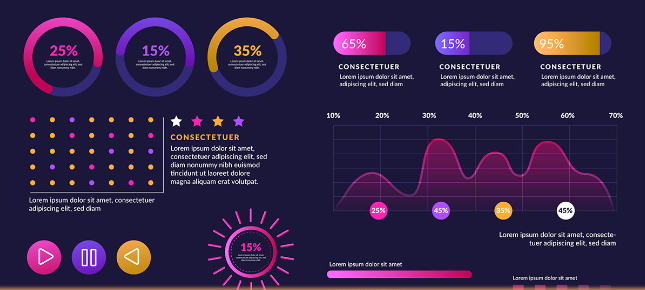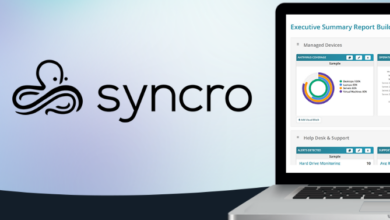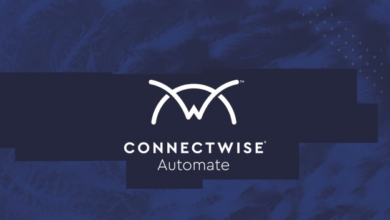Best RMM for Small Business

Best RMM for Small Business –
What is Best RMM for Small Business

Determining the absolute “best” RMM for small businesses can be tricky because it depends on your specific needs and budget. However, some strong contenders consistently rank highly for small businesses:
Top contenders:
- NinjaOne (formerly NinjaRMM): Praised for its ease of use, affordability, and robust feature set, including patch management, remote control, and automation capabilities. It’s a good fit for growing teams.
- Atera: Another user-friendly and budget-conscious option with a comprehensive feature set. Atera is well-suited for businesses seeking a simple and streamlined RMM solution.
- GoTo Resolve (formerly GoToAssist): Offers a well-rounded feature set for patch management, remote control, and security at a competitive price point. It’s a solid choice for businesses wanting a familiar brand with good functionality.
Other options to consider:
- Syncro: Known for its affordability and ease of use, particularly for smaller IT teams.
- SuperOps: Offers a strong feature set at a competitive price, making it attractive for budget-minded businesses.
Factors to consider when choosing:
- Ease of use: How comfortable are you and your team with navigating the software?
- Features: Does the RMM offer the functionalities you need, like patch management, remote control, and security features?
- Scalability: Can the RMM grow with your business needs?
- Pricing: Does the pricing model fit your budget (per-technician, tiered plans, etc.)?
Next steps:
- Research: Explore the options mentioned above and others that might appeal to you. Read reviews and comparisons on sites like G2, Capterra, and SourceForge.
- Free trials: Many RMM providers offer free trials. Take advantage of these to test out the software and see if it’s a good fit for your team.
- Consider your needs: Think about your specific requirements, budget, and team’s technical expertise.
By carefully considering these factors and exploring available options, you can find the RMM software that best suits your small business’s needs.
What to look for in an RMM software
When selecting the ideal RMM software for your small business, there are several key features and considerations to keep in mind:
Core Functionality:
- Ease of Use: An intuitive interface is crucial, especially if your team has varying levels of IT experience. A user-friendly RMM saves time and avoids frustration.
- Device and OS Compatibility: Ensure the RMM supports the range of devices and operating systems you manage, including Windows, macOS, Linux, desktops, laptops, servers, and network devices.
- Patch Management: Automated patch deployment is essential for keeping systems secure and up-to-date. Look for an RMM that simplifies patch scheduling and deployment.
- Remote Control: The ability to remotely access and troubleshoot devices is vital for resolving issues efficiently. Secure remote access features are a must.
- Monitoring and Alerting: Real-time monitoring of system health and performance is key. The RMM should trigger alerts for potential issues, allowing proactive problem-solving.
Additional Considerations:
- Automation: Automating repetitive tasks like reporting generation, software deployment, and system checks can significantly boost your team’s efficiency.
- Security Features: The RMM should offer functionalities like antivirus integration and vulnerability scanning to enhance your overall IT security posture.
- Scalability: Choose an RMM that can grow with your business. Look for solutions that can handle an increasing number of devices and users without compromising performance.
- Reporting and Analytics: Robust reporting capabilities provide valuable insights into system health, performance trends, and security threats. This allows for data-driven decision-making.
- Integration with PSA Tools: If you use a Professional Services Automation (PSA) tool, ensure the RMM integrates seamlessly for streamlined service delivery and billing.
- Pricing: Compare pricing models (per-device, per-technician, tiered plans) to find a cost-effective solution that fits your budget.
Remember:
- Free Trials: Most RMM providers offer free trials. Utilize these to evaluate the software functionalities and user experience firsthand.
- Vendor Support: Reliable and responsive technical support is crucial for any software solution. Choose an RMM vendor known for excellent customer service.
By prioritizing these factors and conducting thorough research, you can select the best RMM software that empowers your small business to manage and maintain its IT infrastructure efficiently and securely.
Best RMM software for small businesses
As mentioned earlier, there’s no single “best” RMM for all small businesses. Here are some top contenders that consistently rank highly for small businesses, but the best choice depends on your specific needs and budget:
Top contenders:
- NinjaOne (formerly NinjaRMM): Known for its user-friendly interface, affordability, and a robust feature set including patch management, remote control, automation, and reporting. It’s a good fit for growing IT teams that value a comprehensive solution.
- Atera: Another user-friendly and budget-conscious option with a well-rounded feature set for patch management, remote desktop, and automation. Atera excels in simplicity and is ideal for businesses seeking a streamlined RMM solution.
- GoTo Resolve (formerly GoToAssist): Offers a familiar brand name with a well-balanced feature set for patch management, remote control, security features, and automation at a competitive price. It’s a solid choice for businesses wanting a user-friendly platform with good functionality from a trusted company.
Other strong options to consider:
- Syncro: Known for its affordability and ease of use, making it particularly attractive for smaller IT teams.
- SuperOps: Offers a strong feature set, including automation and patch management, at a competitive price, making it a good option for budget-minded businesses.
Before choosing, consider these factors:
- Ease of use: How comfortable are you and your team with navigating the software?
- Features: Does the RMM offer the functionalities you need, like patch management, remote control, and security features?
- Scalability: Can the RMM grow with your business as you add devices and users?
- Pricing: Does the pricing model (per-technician, tiered plans, etc.) fit your budget?
- Free trials: Take advantage of free trials offered by most RMM providers to test the software firsthand.
Additional tips:
- Read reviews and comparisons: Look at review sites like G2, Capterra, and SourceForge to see what other small businesses are saying about different RMM options.
- Consider your specific needs: Think about the size of your IT team, the types of devices you manage, and your budget.
By carefully evaluating your needs and exploring these top contenders, you can find the RMM software that best empowers your small business to manage its IT infrastructure effectively.
Conclusion
RMM software can be a valuable tool for small businesses. By automating tasks, improving security, and increasing uptime, RMM software can help businesses to save time and money.
When choosing an RMM software, it is important to consider the needs of your business. Some factors to consider include the size of your business, your budget, and the features that are important to you.



